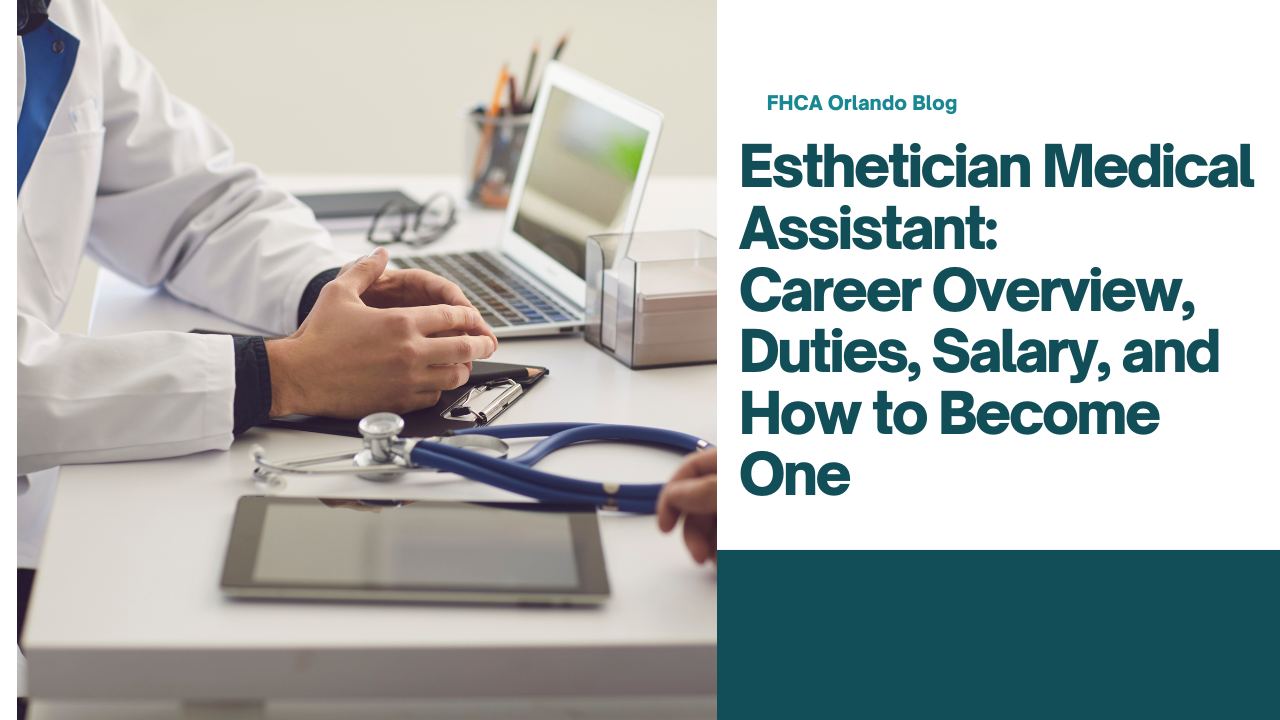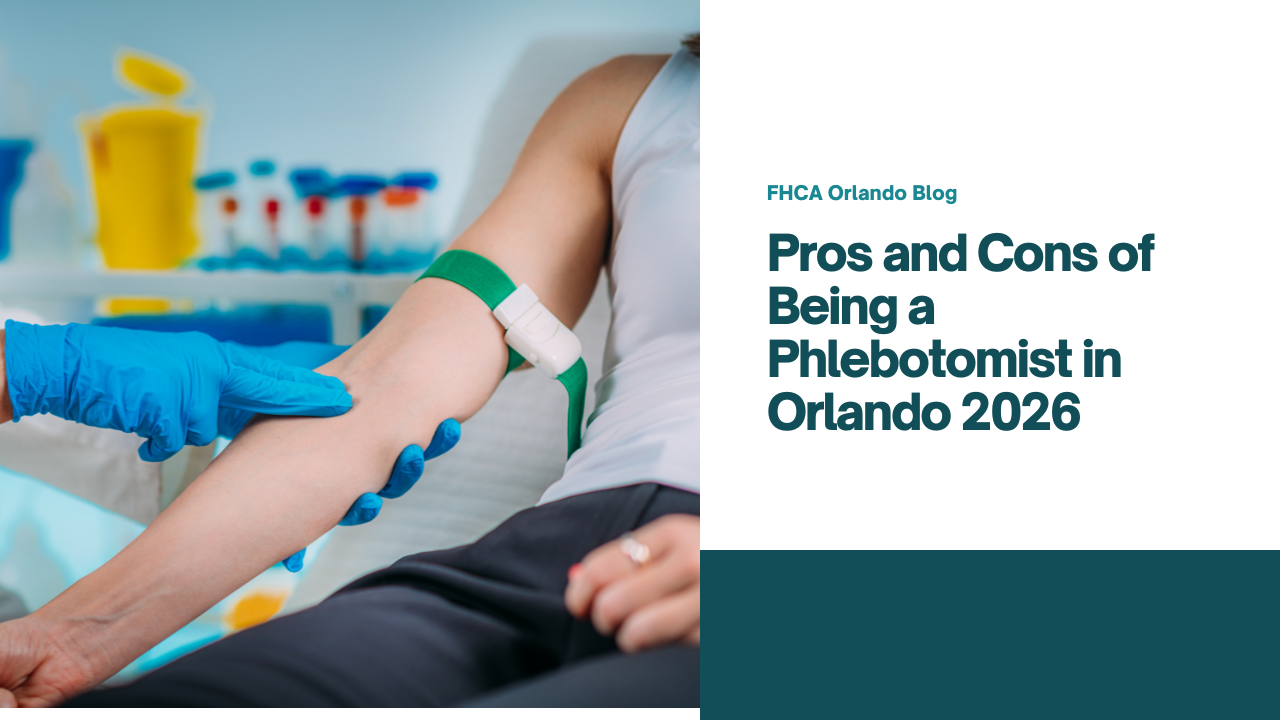How to Become a Medical Lab Assistant
Oct 04, 2025
Becoming a medical lab assistant generally requires completing a focused training program that covers laboratory procedures, safety protocols, and proper specimen handling. While prior experience is not necessary, attention to detail, strong organizational skills, and obtaining the appropriate certification are essential for entering the healthcare field and beginning a lab-based career efficiently.
Some students begin with a foundation in clinical procedures through our medical assistant program Orlando, which offers hands-on experience that’s highly transferable to laboratory roles.
Table of content
- What a medical lab assistant does in healthcare
- Training options to become a medical lab assistant
- Do students need certification to work as a medical lab assistant?
- Ways to get real-world experience while students learn
- Where to find medical lab assistant jobs
- How to become a medical lab assistant FAQs
- Ready to start your career in lab-based healthcare?
What a medical lab assistant does in healthcare
Medical lab assistants are key to patient diagnosis and treatment. They work behind the scenes in labs, collecting samples, running tests, and ensuring results are accurate.
Tasks students’ll handle in a lab
Medical lab assistants work closely with lab technicians and other healthcare professionals. We prepare specimens, label samples, manage equipment, and support lab operations that help diagnose and treat patients.
In many cases, we also interact with patients when collecting samples, especially in smaller clinics or outpatient labs.
How does this role support patient care
Medical lab assistants play a key role by ensuring that samples are properly handled and processed. Your attention to detail helps doctors make informed decisions faster, which directly affects patient outcomes.
Training options to become a medical lab assistant
Students don’t need a four-year degree to start working in a lab. Many students choose shorter, career-focused paths that combine classroom learning with hands-on experience.
Education paths that prepare students for lab roles
Most medical lab assistants complete a short healthcare program that includes training in specimen handling, safety procedures, and lab technology.
Some students begin in related programs, like phlebotomy or medical assisting, which include lab-related tasks. If students’re curious about how these paths compare, this article on the differences between medical assistants and medical lab technicians explains what each role offers.
Why hands-on practice matters
Classroom learning helps, but employers expect students to be comfortable working with real lab tools and following strict procedures.
Hands-on training lets them practice everything from drawing blood to labeling and transporting samples correctly. That real-world confidence makes a difference during job interviews and on the job.
Do students need certification to work as a medical lab assistant?
Certification isn’t always required, but it makes them more competitive, especially in fast-paced labs. It shows employers you’re trained and ready.
Understanding the medical assistant certification cost helps them plan for this step and see the value of getting certified.
When it’s required by employers
In Florida, certification isn’t always legally required for lab assistant roles. However, many employers prefer candidates who hold a certification, especially in settings that involve blood draws or working alongside lab techs.
Depending on your training path, you may qualify to take national certification exams like the NCPT or others that focus on lab and specimen handling.
How certification makes students more competitive
Even when not required, certification shows employers that you’re qualified, reliable, and ready to contribute from day one. It also helps them qualify for a wider range of jobs and better pay.
Ways to get real-world experience while students learn
Even if you're still training, you can start gaining lab experience through entry-level jobs or volunteer work. These opportunities help them build confidence and stand out to employers.
Entry-level jobs that build students' lab skills
Not ready to enroll in a lab assistant program yet? Starting in roles like CNA or medical assistant can help them gain patient care experience and exposure to clinical settings.
These entry-level jobs offer a valuable introduction to healthcare workflows and lab procedures. You can also explore alternative jobs for medical assistants to see which roles may align with your current skill set while preparing for lab responsibilities.
Volunteer or intern to get hired faster
Volunteering at clinics, labs, or community health events can help them build confidence and improve your resume. Some students begin this way while exploring options like how to become a medical assistant, which can also lead to lab-based roles with the right focus and training.
Where to find medical lab assistant jobs
With the right skills, medical assistants can work in a wide range of healthcare settings, from hospitals to private labs. Here’s what employers in Florida often look for.
Common workplaces in Florida
Medical lab assistants are needed in a variety of healthcare environments, including:
- Hospital laboratories
- Diagnostic labs
- Private clinics
- Blood donation centers
- Urgent care facilities
Many of these settings value candidates who can multitask, follow procedures, and handle specimens accurately.
What employers are looking for
Employers want more than just lab knowledge. They look for:
- Strong attention to detail
- Understanding of infection control
- Comfort using lab equipment
- Good communication with patients and team members
Completing a focused, hands-on program that includes lab experience helps students check all these boxes.
How to become a medical lab assistant - FAQs
What skills are essential for medical lab assistants today?
Attention to detail, lab safety, and proper specimen handling are key. Training programs also teach documentation and equipment use.
Can students become medical lab assistants without prior healthcare experience?
Yes. Many programs are designed for beginners and teach both theory and hands-on skills from day one.
Do students need certification to work as a medical lab assistant?
Not always, but having certification makes them more competitive and opens more job opportunities.
How much does a medical lab assistant earn?
In Florida, lab assistants typically earn between $32,000 and $45,000 per year, depending on experience and location (source: BLS.gov).
How can FHCA Orlando prepare students for a career that includes lab skills?
FHCA's medical assistant program Orlando includes lab-based training, hands-on practice, and exam preparation to help students enter the workforce with confidence. The student learns real-world skills that apply directly to both clinical and laboratory environments.
Ready to start your career in lab-based healthcare?
You don’t need years of school to launch a career in lab-based healthcare. With the right program for medical assistant, you can build hands-on lab skills, prepare for certification, and enter the field with confidence.
FHCA supports you from enrollment to employment with expert training and real-world practice.
Enroll now and start your journey toward a fulfilling medical lab career.









